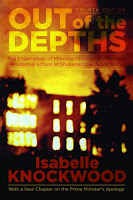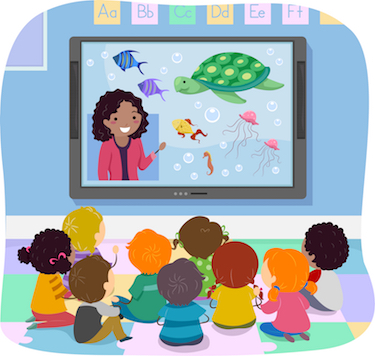Thursday, January 19, 2023
Introducing Jordyn!
Tuesday, January 17, 2023
New Reference Library Resources Available - Have a Look!
Good Morning!
We promised you training opportunities this year, why not add training resources to the mix?
In effort to better incorporate EDI (Equity, Diversity & Inclusion) resources and move our Unlocking Community Museum Collections calls to action forward, we've been working on reviewing and diversifying the ANSM Reference Library. We recognised that our library was lacking in terms of content authored by First Nations Peoples and we sought to remedy this.
The following titles were recommended to us by the Millbrook Cultural & Heritage Centre and primarily centre a First Nations' perspective. Browse the new books below:
First Nations, Métis and Inuit lands and resources are tied to treaties and other documents, their relevance forever in dispute. Contributors share how they came to know about treaties, about the key family members and events that shaped their thinking and their activism and life’s work.
Marie Battiste - Visioning A Mi'kmaw Humanities: Indigenizing the Academy. Second Edition
In what may be termed cognitive imperialism, the academy has largely ignored Aboriginal perspectives of humanity. In this volume, Mi’kmaw and non-Mi’kmaw scholars, teachers and educators posit an interdisciplinary approach to explicate and animate a Mi’kmaw Humanities.Freeman Douglas Knockwood is a highly respected Elder in Mi'kmaw Territory and one of Canada's premier addictions recovery counsellors. The story of his life is one of unimaginable colonial trauma, recovery and hope.
Isabelle Knockwood - Out of the Depths: The Experience of Mi'kmaw Children at the Indian Residential School at Shubenacadie, Nova Scotia. Fourth Edition.
In this newly updated fourth edition, Knockwood speaks to twenty-one survivors of the Shubenacadie Indian Residential School about their reaction to the apology by the Canadian government in 2008. Is it now possible to move forward?
Paula C. Madden - African Nova Scotian - Mi'kmaw Relations
The Indigenous people of Nova Scotia, the Mi’kmaq, have been dispossessed of their lands and, since the early 1820s, confined to reserves. African Nova Scotians have also been dispossessed of lands originally granted to them by white colonial governments and settled in communities with names like Africville, Preston or Birchtown. Yet “the story of Africville, and other stories of dispossession,” argues author Paula C. Madden, “cannot be told and understood outside the context of the dispossession of Indigenous peoples.
Pamela Palmater - Indigenous Nationhood: Empowering Grassroots CitizensIndigenous Nationhood is a selection of blog posts by well-known lawyer, activist and academic Pamela Palmater. Palmater offers critical legal and political commentary and analysis on legislation, Aboriginal rights, Canadian politics, First Nations politics and social issues such as murdered and missing Indigenous women, poverty, economics, identity and culture.
Daniel N. Paul - We Were Not the Savages
The title of this book We Were Not the Savages speaks to the truth of what happened when Europeans invaded Mi’kmaw lands in the 17th century. Prior to the European invasion the Mi’kmaq lived healthy lives and for thousands of years had lived in harmony with nature in the land they called Mi’kma’ki.
Trudy Sable & Bernie Francis - The Language of This Land, Mi'kma'ki
The Language of this Land, Mi’kma’ki is an exploration of Mi’kmaw world view as expressed in language, legends, song and dance. Using imagery as codes, these include not only place names and geologic history, but act as maps of the landscape. Sable and Francis illustrate the fluid nature of reality inherent in its expression – its embodiment in networks of relationships with the landscape integral to the cultural psyche and spirituality of the Mi’kmaq.
Ruth Holmes Whitehead - The Old Man Told Us: Excerpts from Mi'kmaw History 1500-1900
The Mi’kmaw people have been living in what is now Atlantic Canada for two thousand years or more, yet written history has largely ignored them, presenting them merely as a homogeneous mass or as statistics. Renowned historian and ethnologist Ruth Holmes Whitehead tries to redress that omission by restoring to the collective memory a true sense of the Mi’kmaw people.
ANSM Members may borrow up to three items from the library at a time, for a maximum of three months. Please email Brittany (services@ansm.ns.ca) if interested in borrowing any of these titles.
Happy Reading!
Monday, January 16, 2023
Virtual School Programming: Decision Making for Small Museums
Hello!
With school back in session, I thought it would be a good time to bring you another webinar review, this time about virtual school programming. Presented by the Ontario Museum Association, this webinar discusses the questions that small and rural museums need to consider when deciding whether and how to create virtual school programs.There are many benefits of virtual programming, especially for small and rural museums. They offer a great way to increase the accessibility of your museum, whether it be physical or financial. Virtual field trips have the ability to reach a wider and more diverse audience of students, including those outside of your local community. Online programs are often more financially-friendly options for both schools and museums. Students can save on travel costs and museums can save on supplies and staffing costs. Not only do virtual programs help save money, they also require less of a time commitment.
Despite all of the benefits, there are still many important points to consider when taking on the challenge of creating a virtual program for your museum. The webinar provides a helpful worksheet that museums can work through in the program development process to make sure they are thinking about all of the necessary points. If you are thinking about developing a new virtual school program for your museum or re-evaluating an existing program, you may find this worksheet useful. Here is a brief overview of these key areas of consideration:
Why?
Why do you want to do virtual school programming? Before creating a program, you should be thinking about what goals you are hoping to achieve by introducing new virtual options. Maybe you want to offer something new to local schools, engage with new schools outside of your community, or you are seeking a new stream of revenue generation. Ultimately, you will need to decide whether or not virtual school programming is the best way for your museum to reach its goals.
Who?
Who is your target audience? After deciding to move forward with the creation of a virtual program, you will need to decide what grade level, school district, and communities you are hoping to reach. You will also need to think about how you will promote your program to these target audiences, whether it be sharing it through professional organizations, traditional media, or by contacting educators directly.
What?
What is the topic of your program? Think about what your museum knows best and develop a program that fits into your specific area of expertise. Once you choose a topic, think about how it can be tailored to suit the intended audience of the program. As a school program, you will also need to create strong curriculum connections within your program. Educators will not book a program unless they can justify how it serves their curriculum needs, so do your research and make these connections clear.
How?
So now that you have decided what type of program you are going to develop and who its audience will be, you will need to turn your attention to the logistics of how it will operate. Will it be synchronous or asynchronous? What technical equipment will you need to run the program? What are the staffing requirements to build and deliver the program? How will you measure success?
No matter what type of virtual school program you decide to offer, one of the most important things to keep in mind is to start with something small and manageable and scale up from there. It is perfectly fine to get creative and test out different program ideas until landing on the one that works best for your museum. Happy programming!
- Madeline
Tuesday, January 10, 2023
Introducing Naomi and the Unlocking of Made in Nova Scotia
Good morning everyone,
As many of you are aware, last summer a new initiative began to Unlock Collections. The conversations between museums and cultural communities across Nova Scotia revealed that we have much to learn, and much to do. Everyone agreed that the conversational sessions were day 1, and there is a long journey ahead. Before the holidays we gave you an update on progress, and we are very pleased to share one more way in which we are collectively, collaboratively, unlocking museum collections.
Our Unlocking conversations made us recognize how difficult it is for cultural communities to identify their community members and stories within this resource. Cultural affiliations were never part of Made in Nova Scotia, and we want to correct this. Cue Naomi. She is coming on board to do some research on Nova Scotia's creative community and tag businesses and individuals' cultural affiliations. This is a monumental task, but we all agree that it will be interesting and worthwhile, and we just need to eat the elephant one bite at a time. Here's a little message from Naomi:
Hello! My name is Naomi Richards, and I am a volunteer with ANSM. I am currently in the Master of Information program at Dalhousie University and I’m really eager to become involved with the Nova Scotia museum community as well as learn more about the preservation of cultural heritage. I’m also very interested to work with the data management systems utilized by museums and get more hands-on experience working in the GLAM (galleries, libraries, archives, and museums) sector. I have a BSc in Biology and a minor in Classical Studies from the University of British Columbia, which has given me a broad set of interests and background experience to draw upon. I’ve previously volunteered with the Museum of Vancouver and worked as a Circulation Assistant at the University of British Columbia's Music, Art, and Architecture Library.
Outside of school I love to read, knit, and dance! Halifax is the fourth city I’ve lived in, my favourite of which is Edinburgh Scotland, where I studied abroad in my undergraduate degree. Thank you so much to the ANSM for having me, this is an invaluable experience.














